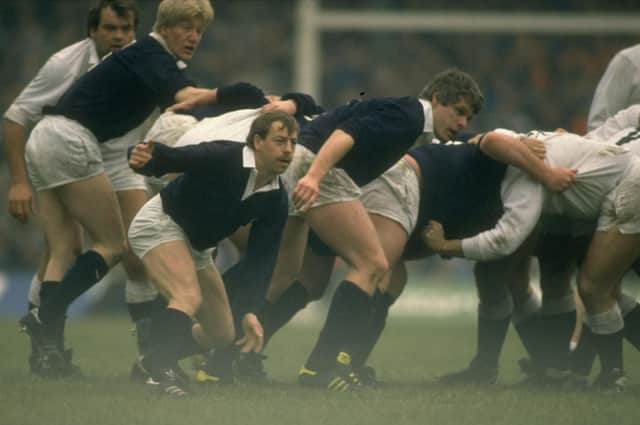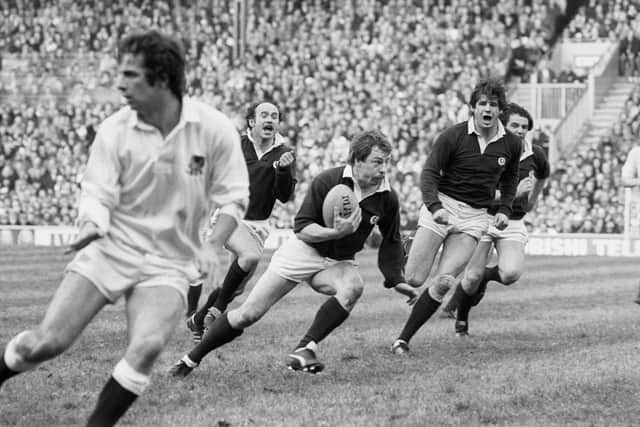Gregor Townsend offers support to Roy Laidlaw following Alzheimer’s diagnosis


The 67-year-old has decided to speak out in a bid to encourage others suffering from memory loss to seek help.
He estimates he chalked up more than 500 games during a stellar career which spanned 17 years at his home town club Jed-Forest and also saw him win 47 caps for Scotland and four for the Lions.
Advertisement
Hide AdAdvertisement
Hide AdLaidlaw – uncle of ex-Scotland skipper Greig Laidlaw – believes the blows to the head he suffered during his playing days contributed to his health troubles but has refused to point the finger of blame at rugby chiefs.
Now Townsend has offered his backing to a man he admits was his boyhood hero.
“I knew Roy has been struggling for a wee while now,” said the Scotland head coach. “Roy is a special person to a lot of people in Scottish rugby.
“He was my favourite player growing up. My mum is from Jed so I had a soft spot for a player coming through from Jed.
“He coached me as well. I remember he was excellent as a coach. We came off a bad defeat, I wasn’t playing that well but I remember him really boosting my confidence.


“I think he only coached the national team for a couple of games but one was a one-point win over in Ireland.
“I have great respect as a person for Roy as well and obviously we’re all thinking of him and supporting him at this time.”
In an interview with the Scottish Daily Mail, Laidlaw opened up on his struggles with Alzheimer’s.
Advertisement
Hide AdAdvertisement
Hide AdHe said: “I do think the head knocks I got contributed to me getting Alzheimer’s, no question, but it was my decision to play the games I did. Nobody forced me to play.


“If you got a head knock, you were given smelling salts and on you went. It was the same all over the world.
“I was one of the smallest players but I had a big heart and was diving in at folk in the tackle. Doing that clearly didn’t help me and I think the concussions I had would have been a factor in getting Alzheimer’s.
“I’m sure some folk in their early 60s – like I was when it first started to affect me – would put their memory loss down to growing old and dismiss it. I was like that.
“I kept putting off going to the doctor. I never thought I would get Alzheimer’s. Well, I am living proof that anybody can get it.”
Laidlaw was a key player in Scotland’s 1984 Grand Slam triumph, scoring two tries against Ireland in the win in Dublin which sealed the Triple Crown.
During his storied Scotland career he formed a partnership with stand-off John Rutherford which was the envy of world rugby. The pair set a new international record for most caps won together as a half-back combination.
A message from the Editor:
Thank you for reading this article. We're more reliant on your support than ever as the shift in consumer habits brought about by Coronavirus impacts our advertisers.
If you haven't already, please consider supporting our trusted, fact-checked journalism by taking out a digital subscription.
Comments
Want to join the conversation? Please or to comment on this article.